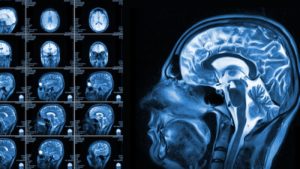Almost everything in a rapidly digitizing age is continuously evolving. The path-breaking artificial intelligence (AI) technology has been instrumental in compelling most industries to undergo a significant transformation. One of the key methods of data analysis responsible for automating systematic model building is machine learning. This specific branch of AI is entirely focused on the objective that systems or machines are capable of learning from data, recognize patterns, and make the final decision or act rationally even without much human intervention.
The Healthcare industry around the world is relying more and more on machine learning tools to improve patient care services. A group comprising scientists at Georgia State University is engaged in the development of an innovative technology, which makes use of data of brain imaging. By doing so, it can judge quite accurately how a patient is going to respond after consuming medicines for a mood disorder.
Scientists’ Take on Their ML Algorithm
The group consisting of noted scientists claims that their machine learning algorithm can seamlessly analyze the functional MRI scan of a patient and conduct an efficient comparison to thousands of patients. It is primarily owing to the results or findings evaluated by the group’s MI algorithm besides medical information; mental health professionals can obtain a deep insight into potential medicines that need to prescribe to patients.
Jeremy Buckholt, who is responsible for helming the Advanced Biomedical Informatics Group, says that their machine learning tool has the capability to enable psychotherapists to gain an in-depth understanding of the brain of an individual affected by a mental disorder. It is solely because of this particular cutting-edge MI tool, offering and conducting personalized medical treatment is possible nowadays.

Jeremy’s Company Received a Grant for a Project
A startup company owned and managed by Jeremy received a grant for a research-rich and exciting project. It is his company’s responsibility to strive to find out that irrespective of the diagnosis is the brain of a mentally ill patient quite alike to a person who is more sensitive to mood-stabilizing medicines or to an individual who gets stimulated quickly by antidepressants.
The sole objective of Buckholt to collaborate with Georgia State University’s psychology professor Vince Calhoun is to program and update the MI algorithm on varied scans from a broad array of patients and multiple sorts of fMRI equipment. Even they conduct interviews of healthcare professionals specializing in psychiatry to gain a profound understanding of the possible ways to implement the MI tool in the actual clinical practice setting.
The group noticed that their machine learning algorithm was 90% precise at estimating medical results entirely based on prior datasets. The team realized that for the algorithm, pointing out key differences between bipolar disorder and depression is challenging. Hence, they want to put in more effort to improve the MI algorithm’s capability.
To obtain approval for medical equipment, researchers are looking forward to submitting their machine learning tool to the United States Food & Drug Administration. The group is determined to get their machine learning tool approved to help psychotherapists understand the suitable medication types to treat patients, diagnosing illnesses of whom is difficult by leveraging the existing method.
Head over to the official website of sepStream® if you wish to get your hands on modern technology-equipped diagnostic devices. Being a reputable organization, it has been offering comprehensive premium-quality radiology or diagnostic solutions at competitive prices.